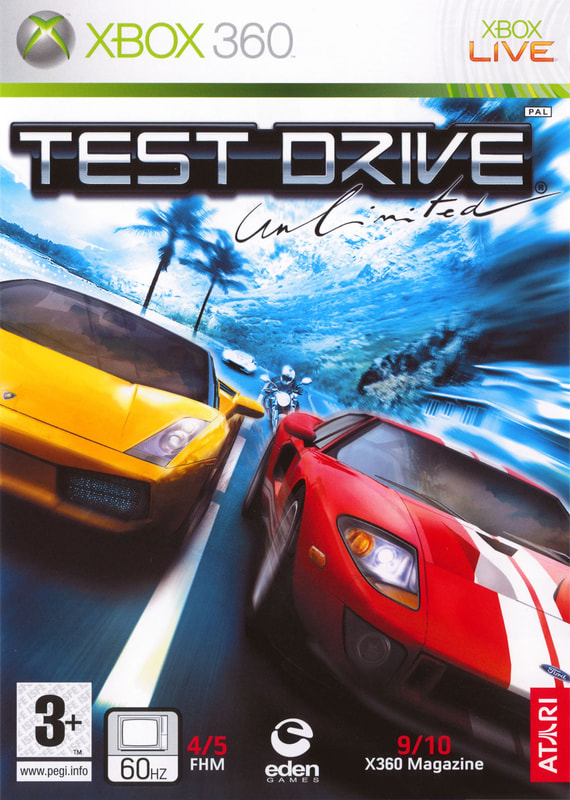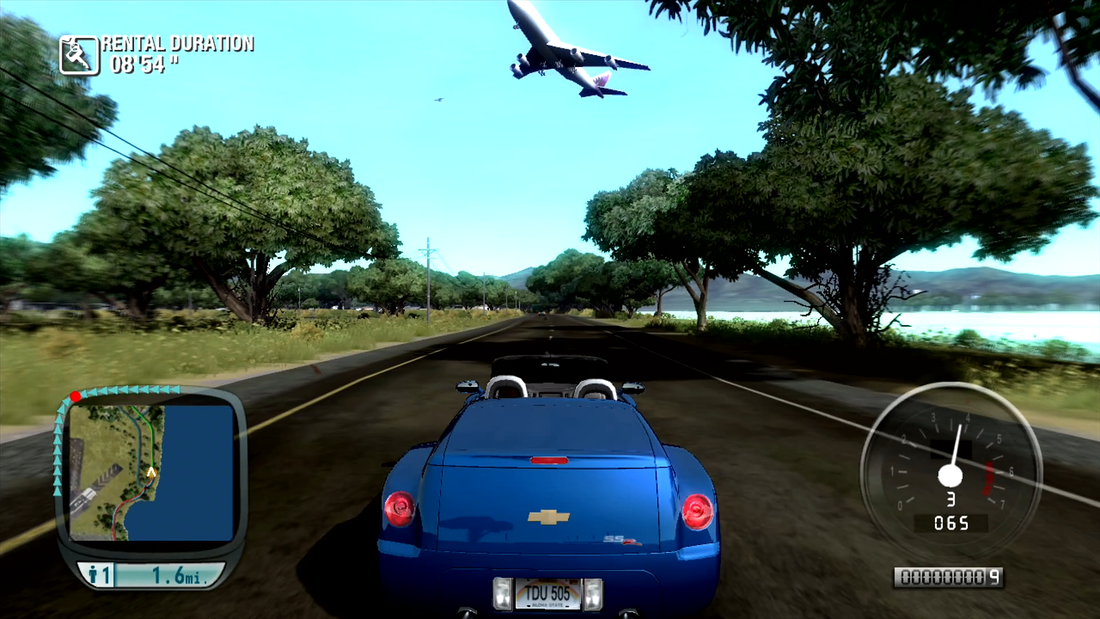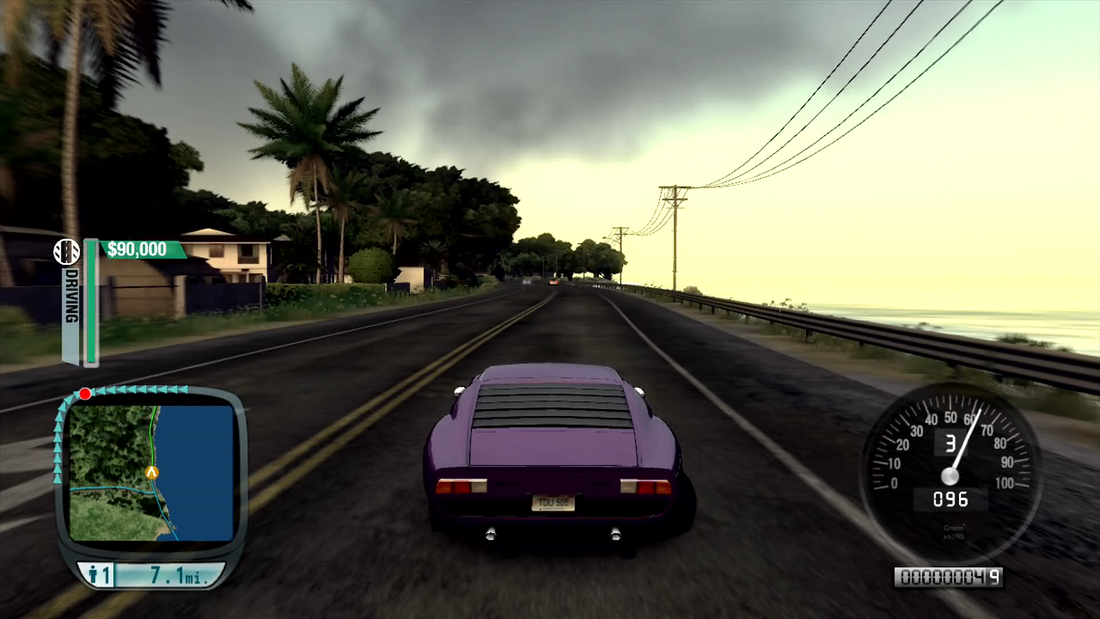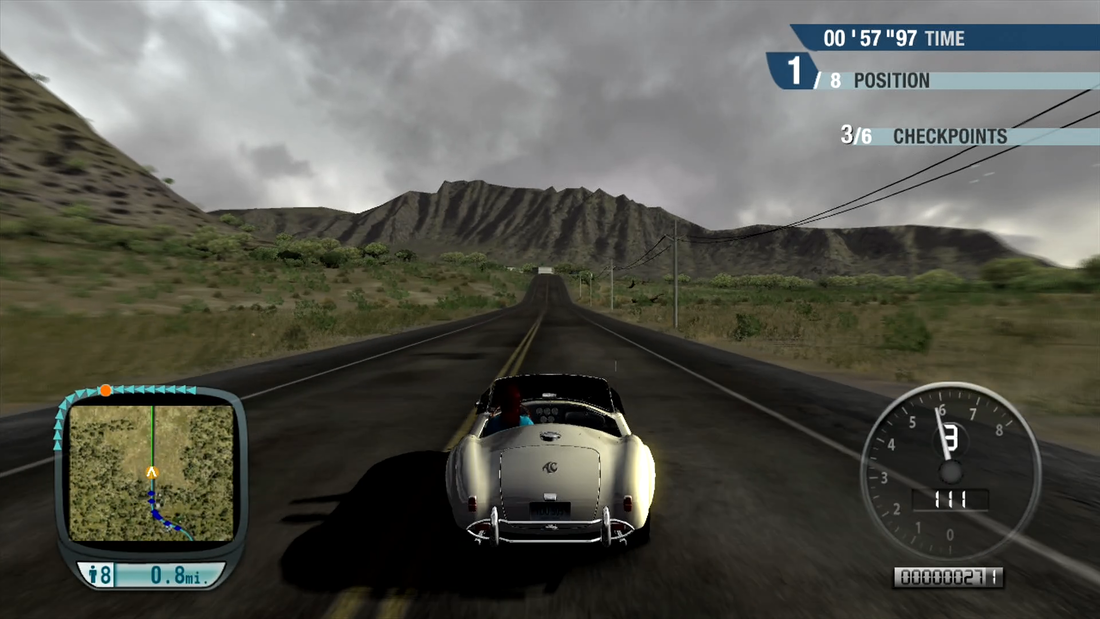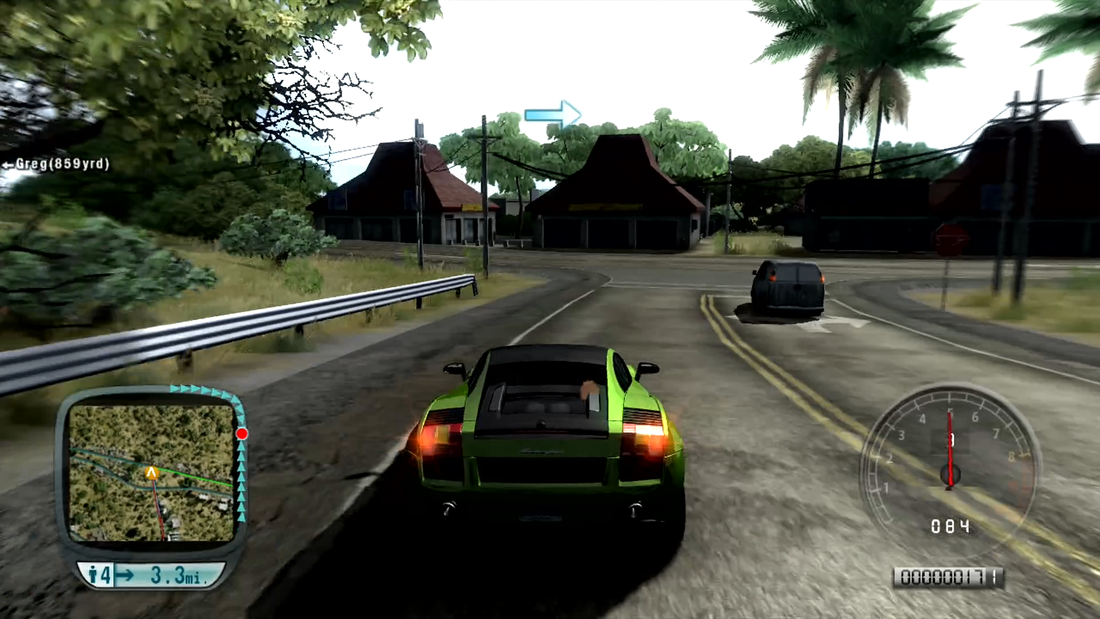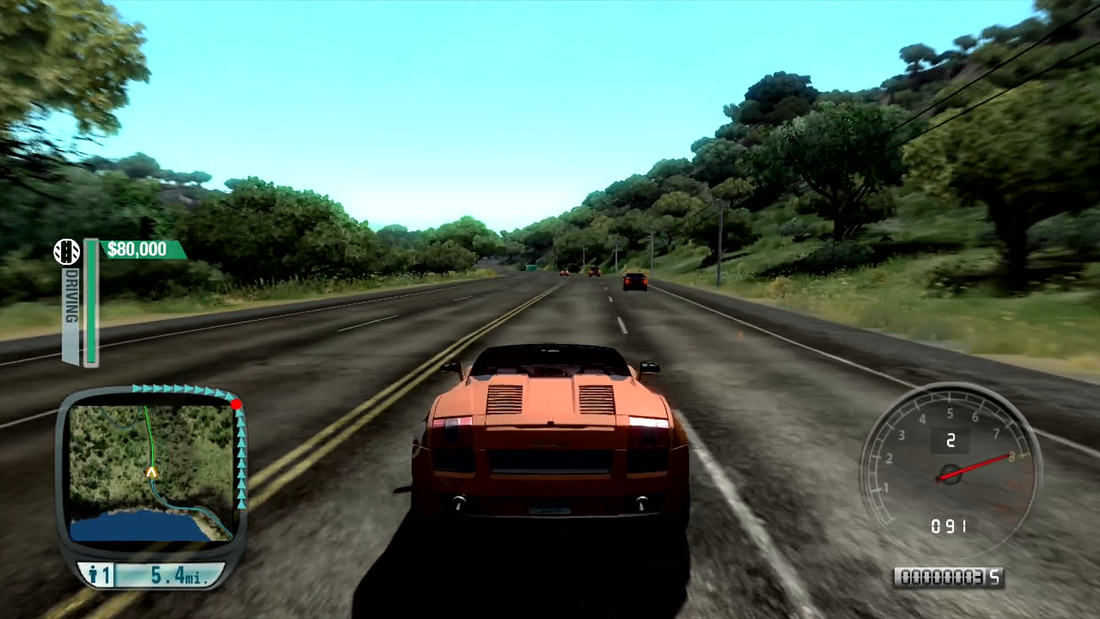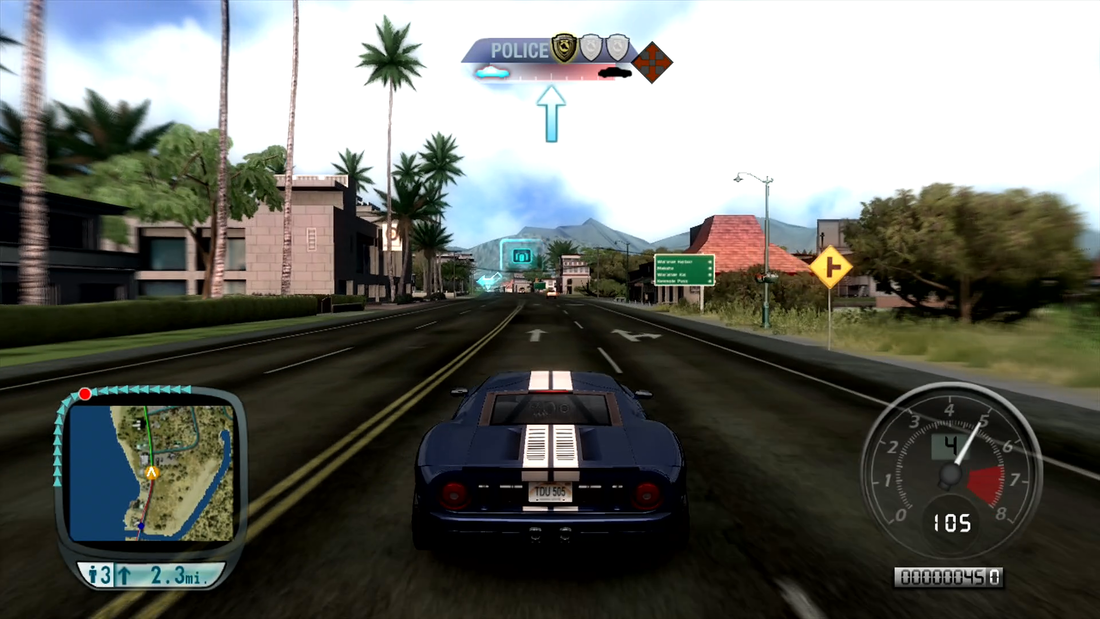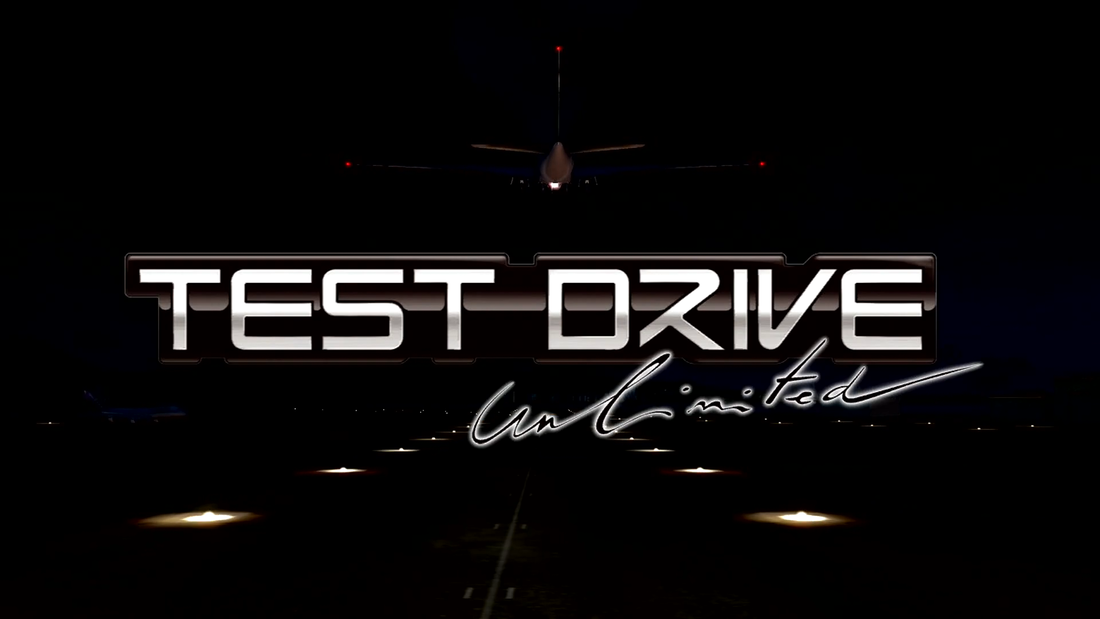TEST DRIVE UNLIMITED (X360)
Having masterminded PlayStation instalments of V-Rally and Need for Speed, Eden Games was enlisted to refresh the enduring Test Drive brand in 2006, following a sequence of underwhelming entries that had seen the series’ presence in the racing genre diminish considerably. Fairing well alongside early Xbox 360 speedathons Project Gotham Racing 3 and Ridge Racer 6, Test Drive Unlimited felt convincingly “next-gen” on release and whilst some aspects aren’t quite as user-friendly as they might have been, an inviting open-world setting and successful online elements would help lay the groundwork for the Forza Horizons and Need for Speeds that would follow.
Featuring more than 1,000 miles of road and based on the Hawaiian island of Oahu, TDU largely succeeds in capturing the zeitgeist of the series’ earliest instalments. The original titles focused predominantly on two elements: the allure of driving luxury sports cars, and “testing” their limits on the open highway, preferably amid traffic and winding routes. Unlimited offers no shortage of vehicle options and, a couple of rather pedestrian (though mercifully brief) classes notwithstanding, the player is quickly able to try out motors from Ferrari, Lotus, Zonda and the like. The game makes good on its name by allowing the player to rent expensive models, whereby ten or twenty-minute sessions may yield good prize money, should you spend the time wisely. Although the cars were never likely to be as clear a selling point here as they were in the eighties due to the recurrent prevalence of certain brands in 21st Century racing games, they are nevertheless appreciably different to drive, with their own driving characteristics, tachometers and engine notes, meaning they’re able to retain a sense of individuality.
Renting cars allows the player to tackle brand-specific events without having to fork out at the car dealerships
The high-stakes gameplay, which sees the player weaving in and out of traffic, is guaranteed to excite fans of Burnout. TDU backs up its hair-raising highway action with smooth performance even at speed, whilst the game’s sizeable island both looks the part and offers a good range of road characteristics. Built-up urban sections give way to exciting coastal drives, with undulating mountain segments comprising the middle of the map. The player can tackle a relentless, more-than-140-mile challenge that largely follows the circumference of the island.
I mentioned luxury earlier and this is an important theme in the game’s modus. Trying out cars without purpose would likely have made generating meaningful lifespan difficult, and whilst TDU decides rather unusually to side-step a storyline altogether, its incentives and progression structure work pretty well. The character selection is novel: potential protagonists form an airport check-in queue, a scene so quaint that it’s guaranteed to raise a smile. What’s more glamorous than racing around a Hawaiian island in some of the world’s most desirable cars? How about living there, owning well over a dozen dream properties, each with its own interior and garage spaces? The dream lifestyle, at least as Unlimited portrays it, is completed by a range of cosmetic items available from shops representing some of the world’s leading designers and some incredibly 2000s-like fashion choices. Nothing meaningful, but it’s a nice touch, and this is a recurrent theme in TDU: enjoying the fruits of your winnings, window-shopping for desirables. Be it for clothing, cars or real estate, the game tries hard to drum up a sense of luxuriating, and collectively, it does add some incentive to beating races.
I mentioned luxury earlier and this is an important theme in the game’s modus. Trying out cars without purpose would likely have made generating meaningful lifespan difficult, and whilst TDU decides rather unusually to side-step a storyline altogether, its incentives and progression structure work pretty well. The character selection is novel: potential protagonists form an airport check-in queue, a scene so quaint that it’s guaranteed to raise a smile. What’s more glamorous than racing around a Hawaiian island in some of the world’s most desirable cars? How about living there, owning well over a dozen dream properties, each with its own interior and garage spaces? The dream lifestyle, at least as Unlimited portrays it, is completed by a range of cosmetic items available from shops representing some of the world’s leading designers and some incredibly 2000s-like fashion choices. Nothing meaningful, but it’s a nice touch, and this is a recurrent theme in TDU: enjoying the fruits of your winnings, window-shopping for desirables. Be it for clothing, cars or real estate, the game tries hard to drum up a sense of luxuriating, and collectively, it does add some incentive to beating races.
It’s hard to grumble about the content, either. More than 100 races and time trials form the meat of the experience, but in true Test Drive style, there are a host of challenges that see the player having to transport stylish cars without accruing damage, or taxiing locals without triggering them through reckless driving. Most events are challenging and engaging, rarely to the point of frustration but often testing gamers to improve their initial attempts, particularly the time trials. Many feel exciting and climactic, with players frequently tasked with gauging risk and reward in scenarios that demand finishing quickly whilst avoiding collisions.
At times, you’ll wish TDU was a shade more accessible. Unlocking missions across the island requires the player to partake in lengthy drives to make them available for fast travel. Frustratingly, new events added as your ranking advances must be driven to, even if they’re in areas you’ve already visited. This has the undesirable effect of making periods outside of missions feel overly long. I spent a lot more time driving to events than I did competing in them. It’s important to note, however, that this doesn’t diminish the enjoyment too much, with games of the time still searching for a middle ground that didn’t remove the simple joy of exploration.
At times, you’ll wish TDU was a shade more accessible. Unlocking missions across the island requires the player to partake in lengthy drives to make them available for fast travel. Frustratingly, new events added as your ranking advances must be driven to, even if they’re in areas you’ve already visited. This has the undesirable effect of making periods outside of missions feel overly long. I spent a lot more time driving to events than I did competing in them. It’s important to note, however, that this doesn’t diminish the enjoyment too much, with games of the time still searching for a middle ground that didn’t remove the simple joy of exploration.
Some events allow the player to switch cars to the necessary class specification, whilst others do not, requiring you instead find the desired motor in one of the many homes you can accrue. A list would have been ideal, as keeping track of a handful across several locations can be fiddly, especially if you’ve amassed eight or nine separate houses. Police chases feel lacklustre and a bit tacked on, and as you’re not permitted to start missions whilst being pursued, such endeavours can prove an unwanted distraction. Shaking a three-star wanted level is a pain as police spawn at an almost-comic rate along the route, and taking scenic routes never yields any benefits as you are never followed off road but the police presence is always the same and awaiting you, regardless of where you re-emerge. Getting caught is not an option, either, as the fines can be absolutely crippling. Bike events and dealerships aren’t made available until you’ve discovered every car dealership (a somewhat bizarre prerequisite), something that’s a tough ask even with the aid of a physical map that comes with the game.
The online aspect fits superbly and, with its extensive array of routes, allows players to enjoy the game’s vast, impressive landscape with others. For an early example of a trait that would become far more common a generation on, TDU handles this relatively pioneering facet very well.
The online aspect fits superbly and, with its extensive array of routes, allows players to enjoy the game’s vast, impressive landscape with others. For an early example of a trait that would become far more common a generation on, TDU handles this relatively pioneering facet very well.
The police chases are slightly underwhelming, but won't prevent you from enjoying Test Drive Unlimited
Like Burnout but set across a massive, freely explorable environment, Test Drive Unlimited has all the cars a petrolhead could dream of and a huge island’s worth of routes with which to enjoy them. The online suite is the game’s most enduring legacy, but strong graphics coupled with excellent performance mean Eden did a great job of refreshing the series, in what is likely its strongest entry to date.
OTHER OPEN-WORLD RACERS WITH AN ONLINE FOCUS REVIEWED
